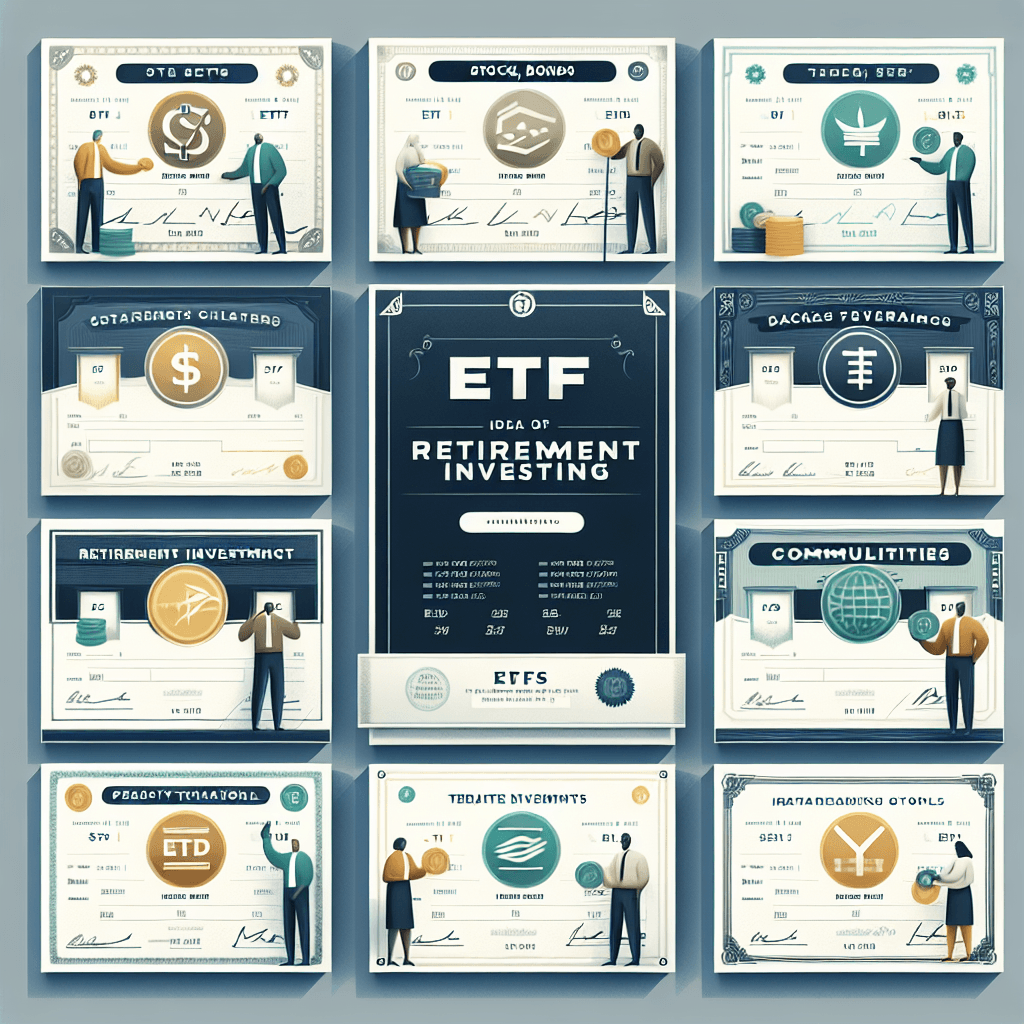Top ETFs for a Secure Retirement Portfolio

Table of Content
- Understanding ETFs and Their Role in Retirement Investing
- Why Choose ETFs for Retirement?
- The Importance of Diversification
- Best ETFs to Consider for Your Retirement Portfolio
- Building a Balanced ETF Portfolio
- Assess Your Risk Tolerance
- Diversification Across Sectors and Geographies
- Regular Portfolio Reviews
- Practical Tips for Investing in ETFs for Retirement
- Conclusion: Secure Your Future with ETFs
Understanding ETFs and Their Role in Retirement Investing
When planning for your financial future, it's essential to consider diverse and efficient means of investing. ETFs, or Exchange Traded Funds, have emerged as one of the most popular investment vehicles, particularly for those building a retirement portfolio. But why are they so favored?
In essence, ETFs combine the features of stocks and mutual funds. They can be traded like stocks on major exchanges, allowing for easy buying and selling, while offering the diversification usually associated with mutual funds. This makes them attractive for retirement investing where stability and growth are both desired.
Why Choose ETFs for Retirement?
ETFs provide several benefits that can make them a solid choice for retirement funds:
- Diversification: Investing in a single ETF gives you exposure to a broad range of securities.
- Lower Costs: Compared to mutual funds, ETFs typically have lower expense ratios.
- Flexibility: ETFs can be easily bought and sold throughout the trading day.
The Importance of Diversification
Diversification is key in any investment strategy, especially when it comes to retirement investing. By investing in ETFs, you can spread your investment risk across various sectors, industries, or geographical locations, thus securing your financial future from unforeseen market swings.
Best ETFs to Consider for Your Retirement Portfolio
Our experts have curated a list of best ETFs to help guide your retirement investing strategy:
-
Vanguard Total Stock Market ETF (VTI)
- Offers comprehensive exposure to the broader U.S. equity market.
- Known for its low cost and tax efficiency.
-
iShares Core S&P 500 ETF (IVV)
- Tracks the performance of the S&P 500 Index.
- A solid choice for consistent growth.
-
SPDR Gold Shares (GLD)
- Provides a hedge against inflation and currency fluctuations.
- Ideal for those looking to add a touch of tangible value.
-
iShares MSCI Emerging Markets ETF (EEM)
- Offers exposure to growing economies and rapid market opportunities.
- A great option for diversifying beyond developed markets.
-
Vanguard Total Bond Market ETF (BND)
- Perfect for those who want a more conservative approach within their portfolio.
- Provides exposure to the entire bond market, enhancing stability.
Building a Balanced ETF Portfolio
The best approach to retirement investing is to have a balanced portfolio that aligns with your personal risk tolerance and retirement timeline. Let's touch on the essential aspects of constructing that balanced portfolio:
Assess Your Risk Tolerance
Your choice among ETF funds should reflect not just your retirement goals, but also how much risk you're willing to take.
- Aggressive Investors might lean more towards stock-focused ETFs like VTI and IVV.
- Conservative Investors should consider a higher proportion of bond-focused ETFs like BND.
Diversification Across Sectors and Geographies
A diverse mix of ETFs ensures you aren't overly exposed to any single economic event. While U.S. markets are a natural choice for many, global diversification with funds like EEM can potentially yield higher returns.
Regular Portfolio Reviews
Market conditions change, and as you move closer to retirement age, your investment needs will likely evolve. Reassess and rebalance your portfolio regularly to ensure it fits your current financial strategy and risk tolerance.
Practical Tips for Investing in ETFs for Retirement
- Dollar-Cost Averaging: Invest consistently over time to mitigate market volatility.
- Automatic Reinvestments: Reinvest dividends to take advantage of compound growth.
- Seek Professional Advice: While ETFs are user-friendly, consulting a financial advisor can provide personalized insights tailored to your specific needs.
Conclusion: Secure Your Future with ETFs
ETFs can play a pivotal role in ensuring a comfortable and secure retirement. By selecting the right mix of ETF funds and keeping your portfolio aligned with your risk tolerance and financial goals, you are setting the stage for financial success. With the right strategy, ETFs can be a cornerstone of your retirement investing plan.
The journey of retirement investing is ongoing, and it pays to stay informed. What will your next investment decision be?
